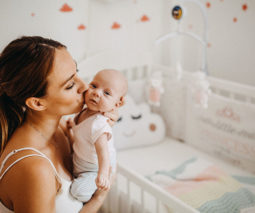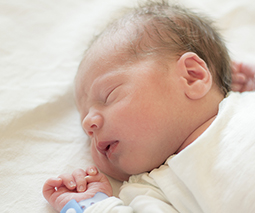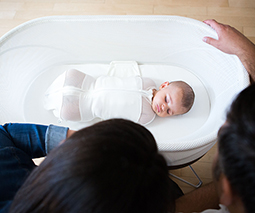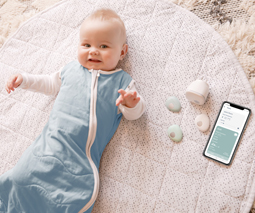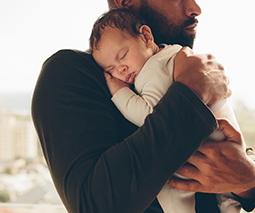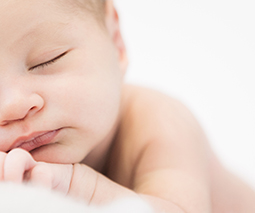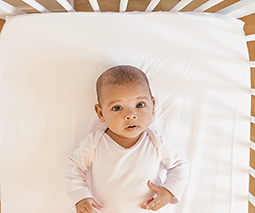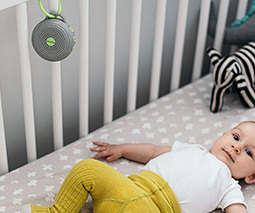7 ways sleep schools AREN’T the answer for tired parents
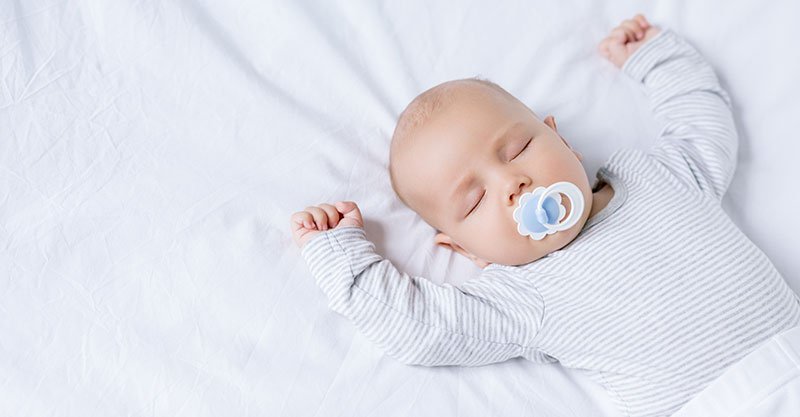
There have been differing opinions about the news this week that the Victorian Labor party plans to fund seven new sleep schools and a 24-hour phone line. On the one hand, the extra sleep schools could help many tired parents who are at their wit’s end – and on the waiting list for a bed in a residential unit that can often be 6 (or more) weeks long.
Sleep school solution?
But on the other hand, this increased focus on baby sleep might cause more problems for parents.
The Labor party is obviously aware of the parenting challenges in the first year, where sleep deprivation is a big theme, and it’s positive that the government wants to help, but is more sleep schools really what tired mums and dads need?
A post on Facebook page Integrity Calling lists lots of reasons why more sleep schools for Australian parents is NOT what they need.
The writer listed seven pretty strong arguments for their view, with many agreeing. Particularly for those parents who have tried sleep school and ‘failed,’ this post had mums and dads backing the cause.
Dear Mr Andrews, New parents need support – fact. This money could provide some serious help to ease the pressure they…
Posted by Integrity Calling on Monday, November 19, 2018
The post opened with an address to Victorian Premier Daniel Andrews.
Dear Mr Andrews,
New parents need support – fact. This money could provide some serious help to ease the pressure they feel, and I’m glad to see you recognise that.
Point 1: Sleep training doesn’t work
The writer then continued with the revelation that sleep training doesn’t even work for babies, citing recent findings that suggested babies benefit from just 20 minutes of extra sleep a day. Sheesh, is that all? It doesn’t seem worth all the trouble and emotional angst that goes into the process.
Point 2: There’s a SIDS risk
The second point the writer raised was the SIDS implications that arise when a baby’s sleep is ‘artificially’ extended:
“Artificially extending a baby’s sleep (via sleep training methods or any other method) is a SIDS risk. Frequent night waking is an evolutionary protective mechanism, ensuring that baby continues to breathe.”
Unfortunately, new parents aren’t informed enough about the protective measures night-waking offers against SIDS. Instead, we’re led to see the interrupted sleep as a problem that needs to be fixed. Some of us are brainwashed before our baby even arrives. Ever got a copy of Save Our Sleep at your baby shower??
Point 3: It can derail breastfeeding
The third problem raised with sleep schools was the negative impact it had on breastfeeding – and let’s face it, the feeding side of things is hard enough without adding more obstacles to the mix. But it’s quite simple, really. If babies are encouraged to sleep through the night, they will cease to take milk during these hours, which will immediately diminish breastmilk supply.
“Sleep training interrupts demand feeding, encouraging parents to ‘space out’ feeds, or limit night feeds. This not only quickly sees women’s breast milk supply tank, causing them to cease breastfeeding early, but it is also counter-intuitive to both mum and baby getting more sleep.”
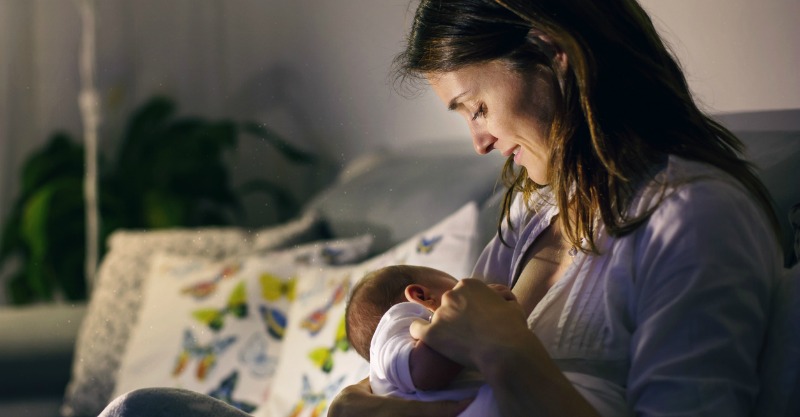
Point 4: It can lead to worse sleep for everyone
Reduced breastfeeding overnight can have a negative impact on sleep for both mum and bub. The writer points out that breastmilk is full of sleep-inducing hormones, that help get your baby back to sleep – and therefore increase the chances that you’ll get more shut-eye too.
“Sleep training tends to focus on the beliefs that baby should be put to sleep without the breast. Rather than making mum’s life easier, this actually makes it harder, because she’s been convinced to give up her best tool for getting her baby to sleep”
Point 5: It separates mum and baby
Sleep training principles tend to fly in the face of safe sleep recommendations which state that mum and bub should sleep in the same room for the first 6-12 months.
“Sleep training regularly encourages parents to have their baby in a separate room. This recommendation goes directly against SIDS recommendations, which is that babies should always sleep in the same room as an adult (including for day sleeps) until age 12 months.”
And for those parents who use video monitoring to keep an eye on their sleeping baby, apparently, this just isn’t enough to guard against SIDS. While many parents believe that sleeping in the same room is about watching for signs of breathing distress, it’s also about parental presence which helps stabilise your baby’s breathing.
“Video monitors and wearable monitors are not a substitute for supervision, for you to see, not only is an adult in the same room always going to be able to respond faster in an emergency, but the sounds baby hears from people going about their lives, the proximity to a sleeping adult’s breathing, these things help the underdeveloped brain to remember to breathe.”
Point 6: Sleep school doesn’t always ‘work’
Sleep schools can offer support and a variety of techniques that parents can use to improves their baby’s sleep, but not every baby is going to respond well to the experience. If this happens, you might simply be told that ‘nothing can be done for your baby.’ Alternatively, for whatever reason, you might not implement any of the strategies when you return home. Does this mean you ‘failed sleep school’?
“There’s such a thing as ‘failing’ sleep school. This happens when your baby just won’t adapt to the methods being taught, or when mothers and parents feel they can not bring themselves to implement the techniques taught as they go against their instincts. When this happens, there is no further support. There are no other options. No one checks up on you, even if you went in on the verge of suicide. The sleep school system simply washes their hands of you.”
Point 7: It’s a variable experience
Sleep school can be a positive experience, but can this can vary widely. The writer questions the damage that can be done when parents have a negative experience in a sleep school.
“Some parents find their sleep school experience supportive and wonderful, never being pressured or coerced into doing something that doesn’t feel right to them or their baby, and learning helpful tips like how to read their baby’s early tired cues better. Others report being physically held outside a locked door whilst their baby screams for hours.”
The support parents really need
So what do parents need to get through the early years? Surely this is about providing better education and support that empowers parents to understand their babies better, and feel more equipped to meet their needs. Postnatal doulas and lactation consultants should be funded to support parents in their home as they adjust to life with a baby. Campaigns that normalise the way babies sleep will reduce the pressure to fix sleep problems that don’t exist.
All of these will empower parents and increase their confidence in reading their baby’s cues and trusting their own parenting instincts. They’re likely to employ other strategies to cope without sleep and enjoy parenting a whole lot more. Whether sleep schools can contribute to this is debatable.
 Need some more baby sleep advice? Our Parent School sleep experts can help. Click to find out more or book a one-on-one session.
Need some more baby sleep advice? Our Parent School sleep experts can help. Click to find out more or book a one-on-one session.
